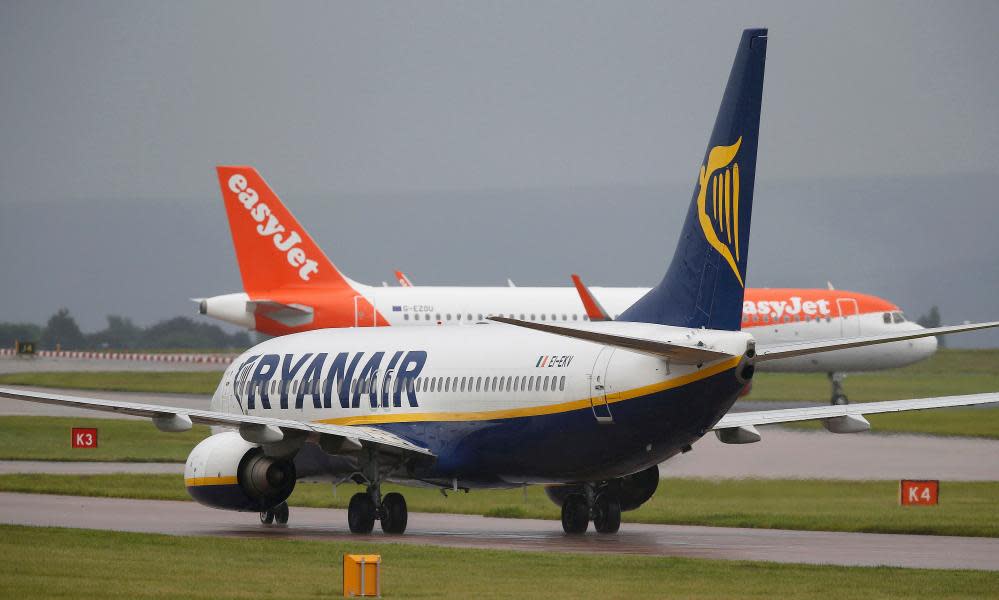Airports call for urgent post-Brexit deal on UK-EU flights

Airports have joined forces to press the government to urgently strike a post-Brexit deal on flights between the UK and the EU, warning that the current uncertainty alone would be enough to see bookings drop by up to 41%.
A report submitted to ministers by the owners of Manchester, Stansted, Heathrow, Gatwick and London City airports concludes that even if flights are not interrupted in March 2019 when Britain leaves the EU passenger numbers are likely to be hit hard without early assurances.
The report, written by WPI Economics on behalf of the airports, found that almost half of passengers booking in the year ahead were likely to change their travel plans if there was any doubt over the status of flights.
British airlines can operate freely within Europe, but international air travel otherwise depends on a host of bilateral treaties, and there is no default fallback for the UK outside the EU.
Ryanair in particular has been warning of the prospect of flights between Britain and the EU being unable to operate without a deal, although other airlines have dismissed the possibility.
But the report warns: “Although an 11th-hour deal may prevent planes from being grounded, damage to the aviation industry and the wider economy would have already been done.”
It added: “The closer we get to the article 50 deadline for the completion of withdrawal negotiations (end of March 2019), without the security of guaranteed future access to the single aviation market, the greater the negative economic consequences will be.”
While the worst-case scenario from the economists’ modelling would see 8 million fewer passengers in 2019, their central forecast is 2.3 million, or 11.5%, fewer air passenger bookings expected before March 2019 for travel on UK-EU routes after the article 50 deadline. Air freight will also be affected.
The report urges the government to strike a deal as soon as possible, ideally before spring 2018. “Not doing so could mean that, hundreds of thousands of passengers and aircraft movements are affected. This will be bad for the aviation industry and bad for the economy ... The UK’s overseas trading relationships and domestic economic activity supported by air travel will suffer.”
A spokesperson for MAG, which owns Manchester and Stansted airports, said: “Other sectors are able to plan on the basis of WTO fallback arrangements, but the aviation industry is at a distinct disadvantage because in the event that the UK leaves the EU without a deal, it doesn’t have the same sort of ‘safety net’.
“Tickets will soon go on sale for flights in a post-Brexit world and both airlines and passengers need assurance from the EU and UK government to enable them to plan for the future.”
Heathrow, one of the co-sponsors of the report, said it was confident that the government understood the role aviation played in the economy. It has argued that its expansion plans for a third runway are even more necessary in the event of Brexit.
The airports’ report follows other forthright advice from the aviation industry, notably from airlines, that clarity on the legal framework was needed soon or flight schedules – planned and sold up to a year in advance – would be jeopardised.
A Department for Transport spokesperson said: “Our aviation industry is the largest in Europe, and both we and the EU benefit from the connectivity it provides. That’s why we are pursuing liberal access to European aviation markets – including all the benefits that brings for consumers.”

 Yahoo News
Yahoo News 
